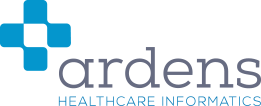NHS England published a national patient safety alert for patients at risk of adrenal suppression in August 2020. Further information can be found here. We have number of resources to support you to embed this as part of your normal practice.
Reports
To access the searches, navigate to
> Clinical Reporting
> Ardens Ltd
> Prescribing | Alerts
> Corticosteroid:

This folder has a number of searches you may wish to use as a way of prioritising patients who may need to receive an emergency steroid card. A printable steroid card is available from the Corticosteroid monitoring template.
The emergency steroid card differs from the steroid treatment card, often referred to as the 'blue' steroid card. The treatment card can be used as supporting information on the dose, drug and duration of treatment, along with prescriber details. These can also be given out at the point of dispensing in a community pharmacy so we are unable to report on these in any meaningful way. Information about the supply of these cards can be found in the BNF.
Points to note:
Oral
We look for patients prescribed an oral steroid >2 times in the last 12 months. This part of the report is looking for medications in the 'glucocorticoid therapy' and 'corticosteroids (in chronic bowel disorders)' action groups.
Topical
Whilst the NPSA alert did not specifically exclude topical steroids, Ardens’ clinical team felt that to include them would lead to excessive ‘false positives’ as most patients on topical steroids are unlikely to be having doses sufficient to cause adrenal suppression.
Inhaled
It is not possible to report on the dose of a medication in SystmOne, which means we use other measures to try and find patients who should be considered for a steroid card. To explain further, we cannot tell if a patient on a 100mcg inhaler is having two puffs a day or eight puffs a day, so they could be receiving medium or high dose steroids using the same device. Therefore SNOMED codes need to be manually added.
The following report assists you in ensuring the coding is correct for patients using inhaled steroids:
On ICS | Add low/normal/high dose SNOMED code for inhaled steroids
These codes can be added from the Asthma template Review page:

You can then run the following report to identify those who may need to be given an emergency steroid card:
On ICS | ?For emergency steroid card as high dose inhaled coded
Patients can be removed from the search by either coding that the inhaled steroid has stopped or the potency reduced, or that a steroid card has been given or not indicated.
- Not using inhaled steroids
- Using inhaled steroids - normal dose
- Using inhaled steroids - low dose
- Has steroid emergency card
- Provision of steroid emergency card
- Provision of steroid emergency card not indicated
Monitoring template
This template can be accessed from the Drug Monitoring template, Auto-Consultation, any template containing steroids, F12 favourites or the ‘Search features’ box in the bottom left hand corner of SystmOne.

The template will assist with managing individual patients, with quick access to:
1. Ensure patient monitoring is up to date
2. Review GI protection, diabetes or osteoporosis risk
3. Record the provision of a steroid emergency card
If you require any further assistance, please contact Ardens Clinical support: support@ardens.org.uk
